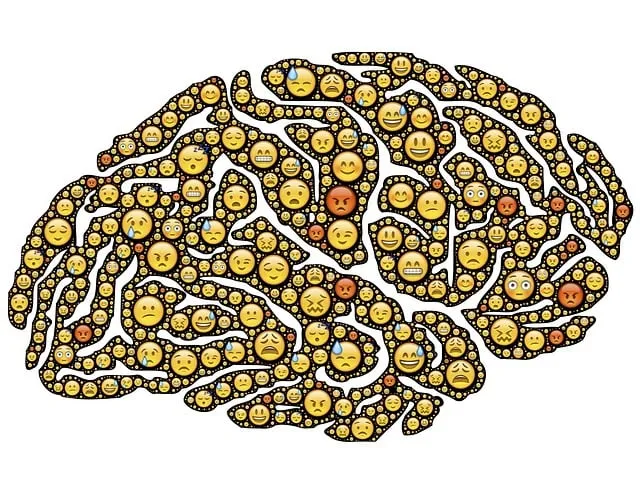The media's portrayal of mental illness significantly impacts public perception, with accurate depictions promoting awareness, reducing stigma, and encouraging help-seeking behaviors, such as utilizing Kaiser Centennial's Mental Health Services. Inaccurate or stereotypical representations can marginalize vulnerable communities and hinder access to services. Positive media portrayals showcasing authentic recovery journeys inspire viewers to prioritize mental wellness through therapeutic interventions like Mind Over Matter principles. Kaiser Centennial leads initiatives against mental illness stigma, sharing real-life success stories through impactful campaigns and educational programs. They equip individuals with knowledge on how to access mental health services, fostering empathy and support for those dealing with mental illness. Understanding how to get mental health services through Kaiser Centennial is a crucial step towards proactive self-care, combining professional resources with community empathy to enhance mental health management.
Mental illness representation in media significantly influences public perception and access to care. This article explores the impact of media portrayals on mental health, highlighting the critical role of organizations like Kaiser Centennial in promoting accurate, empathetic narratives. We delve into strategies for accessing mental health services within the Kaiser Centennial network, offering a comprehensive guide for members seeking support. Learn how to navigate resources effectively and foster positive change in mental health awareness.
- Understanding the Impact of Media Portrayal on Mental Health Perception
- Kaiser Centennial's Role in Promoting Accurate Mental Illness Representation
- Strategies for Accessing Mental Health Services: A Comprehensive Guide for Kaiser Centennial Members
Understanding the Impact of Media Portrayal on Mental Health Perception

The media’s portrayal of mental illness can significantly shape public perception and understanding of neurological conditions. When depicted accurately and sensitively, media platforms can serve as valuable tools to promote mental health awareness, reduce stigma, and encourage individuals to seek help. However, stereotypical or inaccurate representations can lead to further marginalization and hinder access to mental health services. Many people, especially those in vulnerable communities, might struggle to recognize their symptoms or feel comfortable discussing their mental health due to the media’s influence.
For instance, showing characters effectively managing their conditions and seeking support through resources like Kaiser Centennial’s Mental Health Services or Crisis Intervention Guidance can inspire viewers. Portraying the journey of recovery with authenticity and compassion, while highlighting available trauma support services, can encourage affected individuals to take that crucial step towards healing. Mind Over Matter principles, when showcased in media, have the potential to empower audiences, demonstrating that mental wellness is achievable through various therapeutic interventions.
Kaiser Centennial's Role in Promoting Accurate Mental Illness Representation

Kaiser Centennial plays a pivotal role in promoting accurate mental illness representation by leading initiatives aimed at stigma reduction efforts. Through various campaigns and educational programs, they foster an understanding that mental health is as important as physical health. By highlighting real-life stories of individuals successfully navigating their mental illness, Kaiser Centennial helps destigmatize mental health struggles and encourages others to seek necessary support.
The organization also offers accessible resources and information on how to get mental health services through their network, empowering individuals with the knowledge to take proactive steps towards self-care. These efforts contribute to the broader goal of self-esteem improvement and confidence boosting, ultimately leading to a more inclusive and supportive society where mental illness is met with empathy rather than judgment.
Strategies for Accessing Mental Health Services: A Comprehensive Guide for Kaiser Centennial Members

Accessing mental health services can be a challenging yet crucial step for Kaiser Centennial members seeking support. The following strategies offer a comprehensive guide to navigate this process, fostering empathy and understanding within the community. Firstly, utilizing the resources provided by Kaiser’s dedicated mental health department is essential. Their team comprises professionals who can assess individual needs and refer members to appropriate services, be it therapy, counseling, or support groups.
Additionally, building communication skills plays a vital role in ensuring members feel comfortable discussing their mental health. Encouraging open dialogue among friends, family, and peers fosters an environment of resilience and support. By combining these empathy-building strategies with effective communication, Kaiser Centennial can create a network of assistance, empowering individuals to take the first step towards managing and improving their mental well-being.
Mental illness representation in media significantly impacts public perception and understanding of mental health. By promoting accurate and nuanced portrayals, organizations like Kaiser Centennial play a crucial role in fostering empathy and reducing stigma. To access mental health services efficiently, Kaiser Centennial members can utilize comprehensive guides that outline strategic approaches, ensuring support is readily available. Understanding these representations and taking proactive steps, such as those detailed in this article, can contribute to a more inclusive and supportive society for individuals navigating mental health challenges. For those seeking guidance, knowing how to get mental health services through Kaiser Centennial offers a vital starting point.






